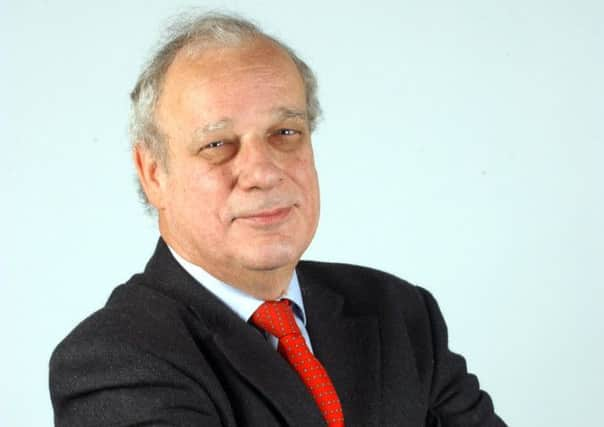Bill Jamieson: Business reacts to No vote


Add to this concerns over interest rates, signs of slowing recovery momentum and a policy crisis in the eurozone, it’s little wonder markets have been so volatile recently.
Investors face real challenges, whether looking for safe, short-term fixed-interest returns or saving for the longer term. Where should we look for yield? Does the prospect of interest rate rises mean we should avoid government bonds and bond funds? If we turn to shares, where are the funds and trusts offering solid yield attractions?
Advertisement
Hide AdAdvertisement
Hide AdOn Thursday, at the National Gallery of Scotland, investors will have a first-hand opportunity to hear – and quiz – some of the leading fund managers in Britain. Following on the sell-out success of previous investment evenings, Scotsman Conferences has assembled four top investment gurus representing in aggregate almost £300 billion of funds under management.
Speakers include John Wyn Evans, head of investment strategy at Investec wealth and investment; James Clunie, manager of Jupiter Asset Management’s Absolute Return Fund; Bruce Jenkyn-Jones, managing director of listed equities, Impax Asset Management, and Alex Wright, portfolio manager of Fidelity Special Values.
There will be an introductory overview by Owen Kelly, chief executive of Scottish Financial Enterprise, and two question and answer sessions.
The speakers will cover topics including what to look for in absolute return funds, the secrets of successful contrarian investing and how to access growth in environmental and resource markets.
And the audience of retail investors, independent financial advisers, stockbrokers, and experts from across Scotland’s financial sector, will have their own pressing concerns. What are the prospects for leading companies in the FTSE 100? Are banks and food retailers still to be avoided? Should we opt for a low-cost index tracker fund, or follow a star fund manager?
How resilient will markets prove to continuing policy gridlock in the eurozone? Will we see a resurgence of interest in developing country markets? And what of the mega trends – the longer-term forces that will profoundly change our economies and our lives over the next 15 to 20 years? How will we meet our energy needs? And what can we expect by way of technological change and the growing demands on key natural resources such as food and water?
Seats are still available. Registration is at 6:30pm followed by drinks and canapés and the evening will conclude with refreshments at 9:15pm. For more information on the event, email [email protected] or give the team a call on: 0131 247 6785.
All over or just starting?
Two weeks ago, tax and regulatory uncertainties looked to have been settled with a 55 per cent No vote to independence.
Advertisement
Hide AdAdvertisement
Hide AdMajor companies such as Royal Bank of Scotland, Lloyds Bank, Standard Life and Aegon announced contingency plans to move key functions out of Scotland in the event of a Yes vote. According to Morningstar, Scotland’s six largest fund management companies suffered a net outflow of £113 million in the seven months to the end of July. Multrees Investor Services, which handles bank accounts for wealth management companies, said it had moved “hundreds of millions of pounds” in the week before the poll.
Will this money now flow back? Is the uncertainty really over – or have we entered a new phase? An intense period in politics lies ahead with current opinion polls pointing to a hung parliament next May, threatening legislative gridlock.
Gordon Brown’s timetable of “more powers for Scotland” legislation envisaged a draft bill by the end of January. However, English MPs will want some quid pro quo by way of changes at Westminster moving towards “English votes for English laws” – but were “more powers” to become ensnared, there would be fury in Scotland.
As it is, the SNP is likely to see a huge surge in the 2015 general election, moving from six MPs to as high as 26. The party has big spending ambitions and it will be pressing for “devo plus” powers to be extended to capital gains tax, inheritance tax and other taxes on income and wealth. Investors and management firms may well feel it is still advisable to move assets rather than face another prolonged period of uncertainty. The past is not behind us, it’s still in front of us.